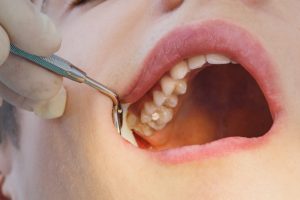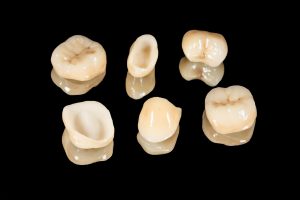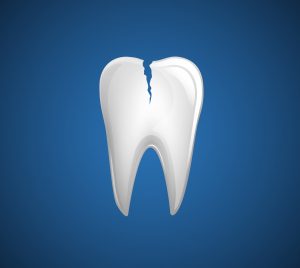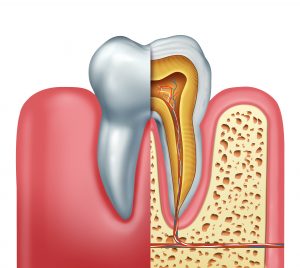 By now you are probably fully aware of the dangers of dental decay and a sub-par preventive health care routine. Indeed, oral bacteria causing damage to your smile is considered one of the biggest threats to your oral health, as it can eventually affect your overall function. Keep in mind, however, that you may be doing everything right to maintain a healthy smile, but a small noticeable blemish can cause your grin to appear sub-par. In today’s blog, your Cedar Rapids, IA dentist wants to discuss the benefits of cosmetic dentistry and how teeth-whitening can boost your smile’s shine.
By now you are probably fully aware of the dangers of dental decay and a sub-par preventive health care routine. Indeed, oral bacteria causing damage to your smile is considered one of the biggest threats to your oral health, as it can eventually affect your overall function. Keep in mind, however, that you may be doing everything right to maintain a healthy smile, but a small noticeable blemish can cause your grin to appear sub-par. In today’s blog, your Cedar Rapids, IA dentist wants to discuss the benefits of cosmetic dentistry and how teeth-whitening can boost your smile’s shine.
Lifelike Results With Restorative Dentistry
 It goes without saying that cosmetic dentistry is acclaimed for its ability to address noticeable blemishes in a manner that provides a near-seamless finish. After all, that is the primary goal. For other treatment, however such as dental crowns, root canals, and more, function is the top priority. That being said, does that mean you must sacrifice a seamless appearance for the sake of function? Not necessarily! In today’s blog, your Cedar Rapids, IA dentist will take a look at the ways restorative treatments such as cavity fillings can restore your smile’s function while also offering a lifelike appearance.
It goes without saying that cosmetic dentistry is acclaimed for its ability to address noticeable blemishes in a manner that provides a near-seamless finish. After all, that is the primary goal. For other treatment, however such as dental crowns, root canals, and more, function is the top priority. That being said, does that mean you must sacrifice a seamless appearance for the sake of function? Not necessarily! In today’s blog, your Cedar Rapids, IA dentist will take a look at the ways restorative treatments such as cavity fillings can restore your smile’s function while also offering a lifelike appearance.
Instances In Which A Dental Crown May Be Needed
 Like many adults, a lifelong smile may be one of your many goals you hope to accomplish, but keep in mind that the first step is to understand that preventive dentistry is the name of the game. Indeed, a large portion of this goal resides on your ability to attend routine checkups, pay mind to foods that are consumed, and practice excellent brushing and flossing at home. For others, however, restorative dentistry may need to play a bigger role in order to combat the effects of decay and infection. In today’s blog, your Cedar Rapids, IA dentist will look at a versatile restoration – the dental crown – and identify ways one might be needed to restore your grin.
Like many adults, a lifelong smile may be one of your many goals you hope to accomplish, but keep in mind that the first step is to understand that preventive dentistry is the name of the game. Indeed, a large portion of this goal resides on your ability to attend routine checkups, pay mind to foods that are consumed, and practice excellent brushing and flossing at home. For others, however, restorative dentistry may need to play a bigger role in order to combat the effects of decay and infection. In today’s blog, your Cedar Rapids, IA dentist will look at a versatile restoration – the dental crown – and identify ways one might be needed to restore your grin.
Is It Time For Your Little One’s Smile Boost?
 Concerns that develop over time and warrant restorative measures often can be prevented if you seek treatment in a timely fashion. Indeed, excellent preventive care is a lifelong task, and one that it is never too early to begin. In fact, we encourage you to bring your little one in as soon as he or she gets their first tooth in order to ensure proper monitoring and development. In today’s blog, your Cedar Rapids, IA dentist will address the importance in attending a routine checkup, as well as how we can provide a small boost of strength to protect your child’s developing grin.
Concerns that develop over time and warrant restorative measures often can be prevented if you seek treatment in a timely fashion. Indeed, excellent preventive care is a lifelong task, and one that it is never too early to begin. In fact, we encourage you to bring your little one in as soon as he or she gets their first tooth in order to ensure proper monitoring and development. In today’s blog, your Cedar Rapids, IA dentist will address the importance in attending a routine checkup, as well as how we can provide a small boost of strength to protect your child’s developing grin.
Bridging The Gap To Complete Your Smile
 It goes without saying that sometimes you may tend to fall short on your preventive care routine. Whether you forget to floss after a meal or head to bed without brushing your teeth, what seem like minor mishaps can eventually grow and compile into potentially major problems. Some of these include infection, tooth decay, and even loss. In today’s blog, your Cedar Rapids, IA dentist will take a look at losing multiple adjacent teeth and how our office can help by setting you up with a custom-made dental bridge to once again complete your smile.
It goes without saying that sometimes you may tend to fall short on your preventive care routine. Whether you forget to floss after a meal or head to bed without brushing your teeth, what seem like minor mishaps can eventually grow and compile into potentially major problems. Some of these include infection, tooth decay, and even loss. In today’s blog, your Cedar Rapids, IA dentist will take a look at losing multiple adjacent teeth and how our office can help by setting you up with a custom-made dental bridge to once again complete your smile.
Addressing Minor Chips With Cosmetic Bonding
 Many individuals experience a form of dental anxiety when it comes to extensive treatment, major concerns, and more. Whether you are facing large concerns such as the effects of severe decay and tooth loss, or the more minor ones such as a small chip or crack in a tooth, it can become difficult to make the effort to come to the office to have the problem addressed. Fortunately, not every threat warrants extensive treatment, and many actually can be solved with simple procedures if you act in a timely manner. In today’s blog, your Cedar Rapids, IA dentist will discuss how cosmetic dentistry can provide a non-invasive and simple treatment to addressing minor chips and cracks.
Many individuals experience a form of dental anxiety when it comes to extensive treatment, major concerns, and more. Whether you are facing large concerns such as the effects of severe decay and tooth loss, or the more minor ones such as a small chip or crack in a tooth, it can become difficult to make the effort to come to the office to have the problem addressed. Fortunately, not every threat warrants extensive treatment, and many actually can be solved with simple procedures if you act in a timely manner. In today’s blog, your Cedar Rapids, IA dentist will discuss how cosmetic dentistry can provide a non-invasive and simple treatment to addressing minor chips and cracks.
When Chronic Teeth-Grinding Results In Jaw Dysfunction
 For many people, the biggest concerns to their beautiful, healthy smiles come from harmful oral bacteria eating away at their natural structures. Indeed, decay is at the core of a number of dental issues and threats to your oral health, including cavities, infected root canals, deterioration, and ultimately tooth loss. For other individuals, however, this concern falls in the shadow of another, one that results in a jaw dysfunction that impacts their every day. In today’s blog, your Cedar Rapids, IA dentist will look at the effects of chronic teeth-grinding, and how it can ultimately result in severe misalignment and discomfort if left untreated.
For many people, the biggest concerns to their beautiful, healthy smiles come from harmful oral bacteria eating away at their natural structures. Indeed, decay is at the core of a number of dental issues and threats to your oral health, including cavities, infected root canals, deterioration, and ultimately tooth loss. For other individuals, however, this concern falls in the shadow of another, one that results in a jaw dysfunction that impacts their every day. In today’s blog, your Cedar Rapids, IA dentist will look at the effects of chronic teeth-grinding, and how it can ultimately result in severe misalignment and discomfort if left untreated.
Why You Should Not Ignore That Cavity
 Dental decay is one of the more common concerns out there, affecting a number of individuals yearly. In its earliest stages, the damage caused by these oral bacteria can easily be managed. If you do not act with efficiency, however, the decay can spread and cause a number of concerns, from cavities, to internal infection, and even tooth loss that causes the need for an implant replacement. In today’s blog, your Cedar Rapids, IA dentist will look at the reasons why you should not ignore a cavity as well as the negative effects that occur if you do.
Dental decay is one of the more common concerns out there, affecting a number of individuals yearly. In its earliest stages, the damage caused by these oral bacteria can easily be managed. If you do not act with efficiency, however, the decay can spread and cause a number of concerns, from cavities, to internal infection, and even tooth loss that causes the need for an implant replacement. In today’s blog, your Cedar Rapids, IA dentist will look at the reasons why you should not ignore a cavity as well as the negative effects that occur if you do.
Three Ways Dental Implants Restore Your Bite
 Staying on top of your oral health is a top concern if you want to ensure a healthy, vibrant smile for life. While you may be brushing and flossing regularly at home and attending routine preventive care visits, a number of other factors such as diet and substance use can contribute to infection, decay, and even tooth loss. In today’s blog, your Cedar Rapids, IA dentist will address when infection and decay result in tooth loss and how dental implants can complete your smile once more by addressing a number of concerns.
Staying on top of your oral health is a top concern if you want to ensure a healthy, vibrant smile for life. While you may be brushing and flossing regularly at home and attending routine preventive care visits, a number of other factors such as diet and substance use can contribute to infection, decay, and even tooth loss. In today’s blog, your Cedar Rapids, IA dentist will address when infection and decay result in tooth loss and how dental implants can complete your smile once more by addressing a number of concerns.
Addressing Cosmetic Blemishes with Porcelain Veneers
 When it comes to addressing severe decay and tooth loss, dental implants can provide a lifelike solution that was once not possible. While they are beneficial for extreme cases of dental concerns, extracting a tooth to replace it is not the way to combat more minor concerns such as chips or cracks. In today’s blog, your Cedar Rapids, IA dentist looks at cosmetic dentistry and how porcelain veneers can be utilized to address a number of cosmetic concerns, including chips, cracks, and gaps between teeth.
When it comes to addressing severe decay and tooth loss, dental implants can provide a lifelike solution that was once not possible. While they are beneficial for extreme cases of dental concerns, extracting a tooth to replace it is not the way to combat more minor concerns such as chips or cracks. In today’s blog, your Cedar Rapids, IA dentist looks at cosmetic dentistry and how porcelain veneers can be utilized to address a number of cosmetic concerns, including chips, cracks, and gaps between teeth.




Recent Comments